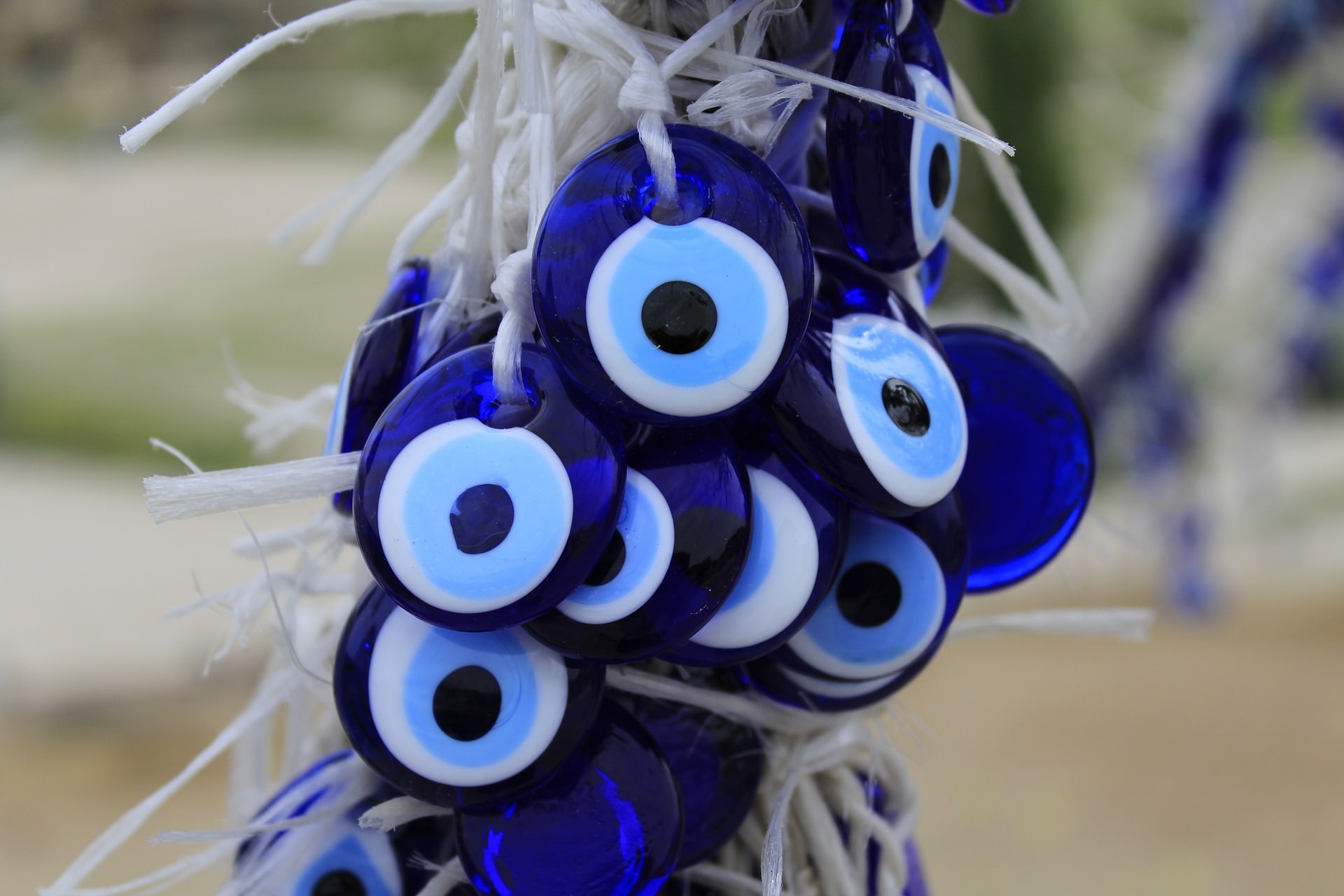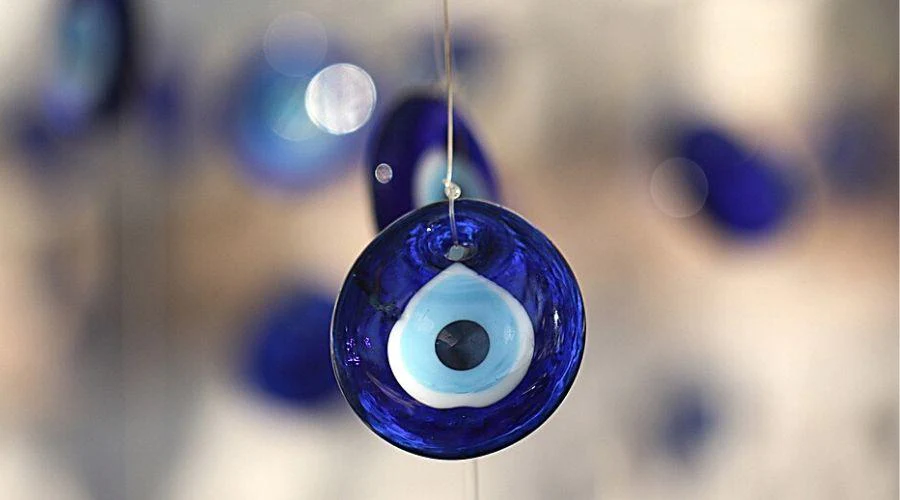What does the evil eyes mean
Have you ever found yourself transfixed by a pair of piercing eyes, filled with an intense gaze that seems to penetrate your very soul? The feeling of being watched can be unnerving, but what if those eyes were not just any ordinary pair? What if they were believed to possess a supernatural power capable of causing harm and misfortune? Welcome to the intriguing world of the evil eye. Across cultures and throughout history, the concept of the evil eye has fascinated and mystified people. In this article, we will delve into its origins, meanings, and various interpretations across different societies. Prepare to uncover the secrets behind this enigmatic symbol that has captured our fascination for centuries.
Exploring the intrigue behind the evil eyes
The evil eye, a symbol that has been deeply entrenched in various cultures for centuries, continues to intrigue and captivate individuals around the world. With its piercing gaze and mysterious allure, the evil eye has a reputation for harboring negativity and bringing about misfortune. But what lies behind this bewitching symbol? What is it about the evil eye that captures our attention and ignites our curiosity?
One possible explanation for the enduring fascination with the evil eye is its universal presence across different societies throughout history. From ancient Egypt to Greece, from Turkey to Mexico, this symbol transcends geographical boundaries and cultural contexts. Its ubiquity suggests an inherent belief in the power of these eyes to affect one’s life. This shared understanding leads us to wonder if there is some truth or hidden meaning behind this age-old superstition. Moreover, it may be that we are drawn to the enigma surrounding these ominous eyes because they serve as a reminder of our vulnerability as human beings. The evil eye represents both a threat and a vulnerability: we fear being subjected to its power, yet we are also aware that anyone can possess it within them. This duality taps into deep-rooted fears and challenges notions of control over our own destinies.
Historical significance: Origins and cultural interpretations
Historically, the concept of the Evil Eye can be traced back to ancient civilizations like Greece, Rome, and Egypt. In these cultures, the Evil Eye was believed to possess supernatural powers capable of inflicting harm upon others with just a glance. It was often associated with envy or jealousy and served as a powerful symbol in warding off negative energy and protecting against misfortune.
The interpretation of the Evil Eye varies across different cultural contexts. In Mediterranean countries such as Turkey and Greece, it is seen as a powerful talisman that guards against evil forces. The eye-shaped amulets are used to deflect any envious gazes that may cause harm. However, in some Middle Eastern cultures such as Iran or Iraq, the belief is turned on its head—rather than merely protecting from the curse itself, they believe that one possesses the power to cast an evil eye onto others through feelings of envy or resentment.
Symbolic meaning: Protection or malevolence?
The symbolic meaning behind the evil eye has long been a subject of fascination and debate. While some cultures see it as a symbol of protection against malevolent forces, others view it as a harbinger of evil and misfortune. One interpretation suggests that the eye serves as a talisman, warding off negative energy and ill intentions directed towards its wearer. In this context, the belief is that the gaze of others can transmit harmful thoughts or envy, which can be deflected by the presence of an evil eye symbol.
On the other hand, there are those who perceive the evil eye as a symbol of malevolence itself. They believe that wearing or displaying this emblem intentionally invokes harm on others through jealousy or malicious intent. This concept aligns with ancient folklore from various cultures in which the malevolent power of covetousness led to curses and calamity for those unfortunate enough to fall under its gaze. This perspective suggests that rather than acting as a protective amulet, the evil eye carries an inherent sense of danger and hostility. Ultimately, whether one sees the evil eye as a symbol of protection or malevolence depends on their cultural beliefs and personal interpretations. It is intriguing how such contrasting perspectives can emerge from a single object imbued with symbolic meaning. Perhaps this duality highlights our complex relationship with notions of good and evil – reminding us that symbolism can be multifaceted, capable of encompassing opposing ideas within its mystical embrace.
Global presence: Evil eye beliefs around the world

Evil eye beliefs are not only limited to one culture or region; they have transcended borders and taken root in various parts of the world. In Greece, the concept of mati refers to the evil eye, and it is believed that jealous glances can bring harm or bad luck. Similarly, in Turkey, the evil eye symbol, known as Nazar Boncugu, is a traditional talisman used to ward off malevolent gazes. This belief is also prevalent across the Middle East and North Africa, where people use various amulets and charms for protection against the evil eye.
Moving beyond Europe and Asia, we find that belief in the evil eye has also left its mark on Latin America. In countries like Brazil and Mexico, it is known as mal de ojo or el ojo. Interestingly, some indigenous cultures in these regions believe that certain individuals possess an inherent power to cast curses with their gaze. They employ rituals involving herbs, crystals, or even animal sacrifice to counteract this negative energy.
Psychological explanations: The power of perception
One of the most fascinating aspects of human psychology is the power of perception. It is our ability to interpret and make sense of the world around us that often shapes our beliefs, attitudes, and behaviors. When it comes to the concept of evil eyes, psychological explanations offer an intriguing perspective.
Perception plays a significant role in how we perceive others’ intentions and actions. In many cultures, the belief in the evil eye stems from this perception bias towards negativity. This bias causes people to focus on negative outcomes or harm caused by others rather than considering more rational explanations for unfortunate events. It becomes a form of cognitive shortcut that allows us to assign blame or make sense of situations without engaging in deeper analysis. Additionally, psychological studies have shown that experiencing envy or jealousy can amplify one’s belief in the existence and power of evil eyes. When an individual feels threatened by someone else’s success or attributes their own failures to envy directed towards them, it strengthens their conviction in supernatural forces like the evil eye. This phenomenon highlights how our emotions can subtly influence our perceptions and lead us down paths guided by irrational beliefs.
Conclusion: The enduring mystery of the evil eyes
While the concept of the evil eye has been present in various cultures throughout history, its true meaning remains shrouded in mystery. Despite countless theories and interpretations, there is no definitive consensus on what exactly the evil eye represents. This enduring ambiguity only adds to its intrigue and allure, capturing our imagination as we seek to uncover its secrets.
One possible interpretation of the evil eye is that it symbolizes envy and jealousy. In many cultures, it is believed that possessing a strong will or an attractive appearance can attract negative attention from others who may feel resentful or envious. This negative energy is said to manifest itself through the malevolent gaze of the evil eye, causing misfortune or harm to the recipient. Another perspective suggests that the evil eye serves as a warning against excessive pride and arrogance. It acts as a reminder that one’s accomplishments or possessions can draw unwanted attention and potentially invite negativity into their lives. By acknowledging the existence of this ancient symbol, individuals are encouraged to maintain humility and gratitude for their blessings.
